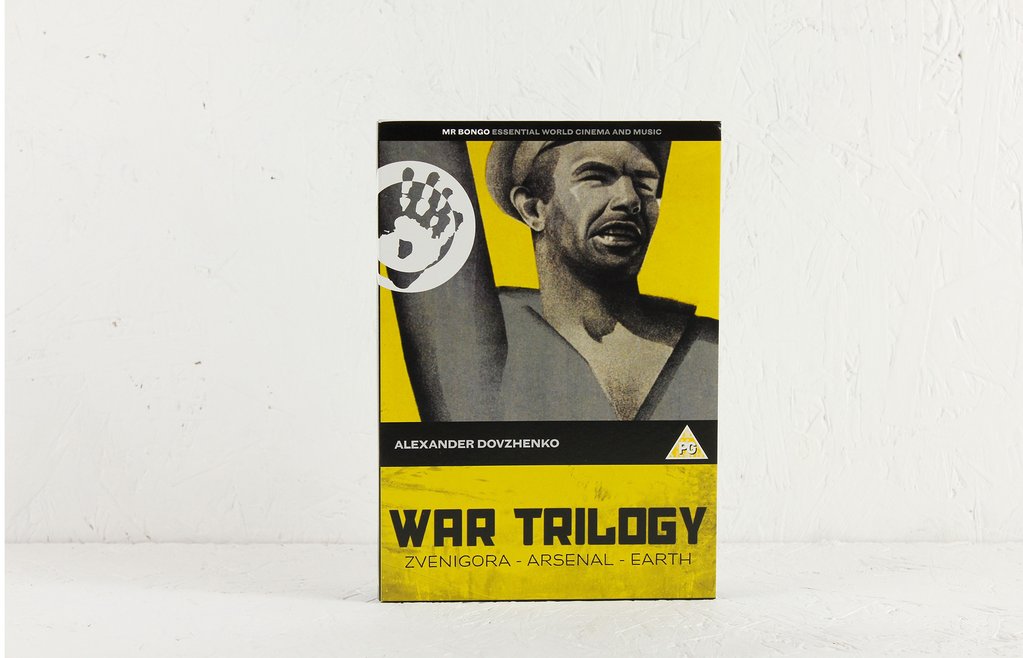
Born to a peasant family that descended from Cossacks, Aleksandr Dovzhenko experienced a harsh childhood beset by poverty and strife. He and his sister were the only children among fourteen siblings to survive into adulthood. He would later note: “I still cannot bear to look at funerals and yet they pass through all my scripts and all my pictures, for the question of life and death affected my imagination when I was still a child and left its imprint on all my work.” Dovzhenko’s parents were illiterate but his grandfather knew how to read and write. He would be a significant presence in Dovzhenko’s childhood, greatly informing the loving portraits of grandfathers in Zvenigora and Earth. His studies led him to take teaching as a profession. He graduated in 1914 and started teaching in 1917. The Russian Revolution would inspire Dovzhenko to join Ukraine’s Communist Party in 1920. He worked as a diplomat for a few years, after which he embarked on a career in the visual arts. He worked as a cartoonist, illustrator and painter before his engagement with cinema. He initially worked as a writer and director of comedies such as Love’s Little Berries before achieving his breakthrough with Zvenigora.
The arrival of sound and Stalin’s emphasis on socialist realism greatly affected Dovzhenko’s output. The works from this period were more obscure and represented a decline from the purity of his silent films. On the other hand, Ivan (1932) is regarded by some critics to be among his best films, while the 1935 epic Aerograd (Air City) was cited by Elia Kazan (On the Waterfront, East of Eden) as a major influence. The strictures of Soviet censorship further intensified during the period of Stalin’s purges. Dovzhenko had long been under observation for supposed nationalist sympathies towards Ukraine. Later films like Shchors and Michurin often suffered as a result of compromises forced on the director by the state bureaucrats.
During the Second World War, Dovzhenko directed documentaries and newsreels, developing personal projects such as Poem of the Sea. The latter film and other projects were completed after his death by his wife Julia Solntseva. His most significant work in this otherwise unfulfilling period was his post as a teacher at the VGIK, the state sponsored film school at Moscow. His students included film-makers like Larissa Shepitko, and most notably Sergei Parajanov. Though somewhat obscure in relation to other silent masters such as Griffith, Eisenstein and Murnau, Dovzhenko’s films rank among cinema’s finest treasures.